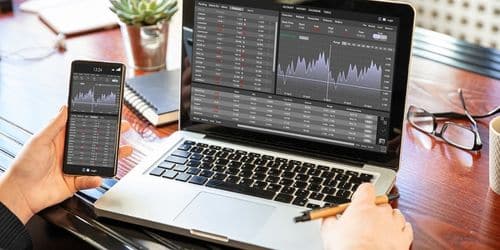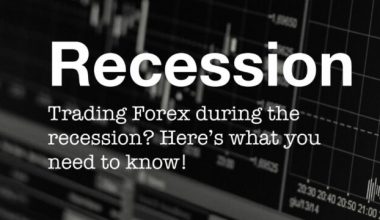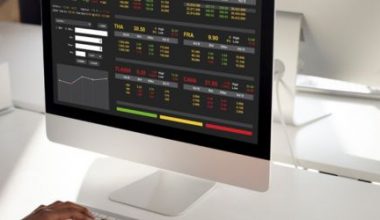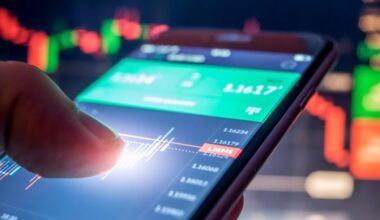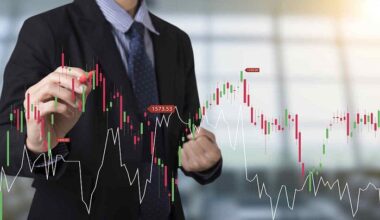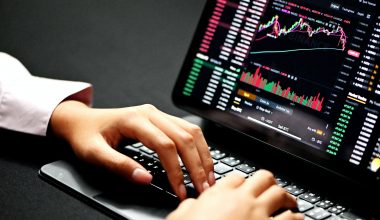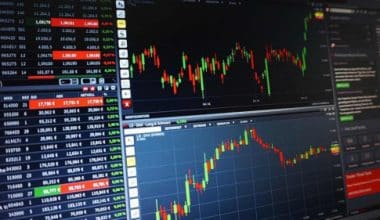Anyone who has looked closely at financial market structures and trends over the years, as well as one who is familiar with accounting tendencies, will know full well how easy it is to manipulate numbers and, in consequence, the market. That is why there are innumerable laws to protect the general public and, more particularly, investors from any harm that will result from financial market manipulation. One such fraudulent activity that the law tries to prevent is insider trading. Congress members continue to engage in insider trading over the years with almost no limitations or penalties
Insider Trading
Insider trading is the act of purchasing, selling, and underwriting, the securities or stocks of organizational key personnel of the enterprise who have access to unpublished price-sensitive information regarding the company. It refers to transactions in a company’s securities by employees and associates of the company who are privileged to get certain information not available to the general public and use such information to exploit the market for their gain.
Once available to the public, such information usually causes a change in the company’s share price. Examples of nonpublic information include a change in company earnings, offering of shares to the public for sale, approval by regulatory authorities, registration of patents, possible merger and acquisitions, joint venture or sale of subsidiaries, management change, entry of a new product into the market, significant dispute with third parties that may lead to ligation and affect company earnings, etc.
You can call them “insiders,” people who have access to nonpublic information. Who, then, is an insider? An insider is typically corporate personnel, such as a director, officer, or employee of a company, who has access to confidential information about the company’s financial performance and prospects.
Additionally, insiders can also include individuals who have access to material non-public information through a relationship with the company, such as a lawyer, accountant, or consultant. In some cases, you can also refer to family members and close associates as insiders if they have access to confidential information.
Summarily, participants in this act range from top senior executives to other stakeholders. Over the years, Congress members have continued to engage in insider trading with almost no limitations or penalties. Although most people think it is illegal, it isn’t always illegal. Sometimes this act is legal.
Insider Trading Example
Businesses have employed different measures to perpetuate insider trading. Some examples include the case of Albert H. Wiggin, the esteemed head of Chase National Bank, who shorted no less than 30,000 shares of his company’s stock! How did he do this? Simply said: insider trading! Wiggin used companies owned by his family to hide this trade and short-sell security.
Short selling is when you sell stocks at a high price in the hope of buying them back when prices are low before the actual delivery. In the event of the 1929 crash, the widespread corruption by both Wiggin and his lot will super the creation of the Securities and exchange commission in the US.
Also, in the case of Ivan Boesky, who opened a brokerage firm in 1975, Ivan F. Boesky and Company, He was receiving tips for upcoming corporate takeovers. He made large sums of money from his company through such tips well into the 1980s, until 1987, when a group of Boesky’s corporate partners entered into a false legal agreement, and the SEC started investing in Boesky.
They discovered he had been receiving tips from investment banking firm Drexel Burnham Lambert dealing in mergers and acquisitions to help ensure his profitability on investments.
Another insider trading example was Martha Stewart and ImClone. In the event of the Food and Drug Administration’s (FDA) refusal to approve a new drug, Erbitux, to be released by Imclone, a pharmaceutical company, the company’s share price began to drop rapidly, falling to 16% in just a day and a lot of stakeholders lost their investment.
However, it was noticed that the CEO as well as his family shareholders were unharmed. Upon further inquiry, it was discovered that Waksal had prior information about the FDA’s intention to decline the request for the drug’s approval.
Insider Trading Congress
The boundaries of insider trading go beyond this. As aforementioned, the law distinguishes between illegal and legal insider trading. Yes, legal insider trading! What, then, is legal insider trading? Insider trading is legal when an insider trades stocks on the market but reports such trading to the authorities i.e security and Exchange commission.
Such trading differs because the law was aware of it, and can therefore be termed a public transaction. An example is a CEO buying 2500 shares of his company’s stock and then proceeding to report it to the SEC. Legal trading happens weekly. It is company employees who trade company stock while notifying the SEC of such trades. It cannot be said that fraud is perpetuated. This is a key factor that distinguishes it from illegal trading, in which insider traders could be said to be defrauding the public by taking advantage of information unknown to them.
This brings up the issue of insider trading in Congress. Members of Congress have continued to engage in this activity over the years with almost no limitations or penalties. Until 2012 when public outcry against insider trading congress resulted in congress passing the STOCK ACT, there existed little to no boundaries on congress insider trading. Even with such a law, it is estimated that Congress spent over five hundred million dollars on it. Sadly the repercussions for this are little to none.
The law, however, still prohibits illegal trading and is subject to harsh consequences for anyone who engages in it. Depending on the jurisdiction and the seriousness of the offense, insider trading punishments might vary, but generally speaking, it can involve fines, jail, or both.
Insider Trading Punishment
Enforcement of federal laws on insider trading is the responsibility of the Securities and Exchange Commission (SEC) in the United States. This act can result in significant fines and up to 20 years in jail as penalties. The SEC may also try to prevent someone from holding a position as an officer or director of a publicly traded company or from taking part in the stock market.
Individuals who engage in insider trading may also be susceptible to civil actions brought by third parties in addition to criminal sanctions.
In addition to the punishment geared towards deterring people from committing insider trading, the law seeks to prevent insider trading by:
- Ensuring the presence of a watchdog sure as the SEC
- Enacting laws that ensure a pre-trade approval process so that insiders can’t just trade any securities without scrutiny.
- Implement an Insider trading stocks blackout at particular periods during the life of a company.
- Educating employees and stakeholders.
How Is Insider Trading Done?
This occurs when a person with non-public, pre-sensitive information about a particular company uses such information to trade securities for their benefit.
Who Is Considered an Insider Trader?
An insider might be different from an insider trader. An insider trader is an insider who is privy to a piece of material information about an entity and breaks his fiduciary duty by using such material non-public information to trade the company stock.
What Are the Three Types of Insider Trading?
The three types are traditional insider traders, quasi-insider traders, and intermediary insider traders.
How Much Do Insider Traders Make?
This type of trading is just as profitable as you imagine it to be! Research carried out by Peter Cziraki and Jamin Gider places the gain of an average insider trader at $12000 per annum.
How Do You Prove Insider Trading?
Before accusing a person of partaking in this act, you must be able to prove that it has taken place. The Law gives three conditions for proof to exist:
- There must be proof that the information was confidential
- There was a breach of fiduciary duty
- Misappropriation of information obtained.
Why Do People Do Insider Trading?
Despite the arguments against insider trading, lots of people still engage in it for several reasons. A major reason, however, is personal benefit. When insiders trade illegally, the main beneficiary of their actions is usually themselves. Nonetheless, those who encourage this type of trading say that it makes it possible for the market price of company stock to be accurately stated as public as well as non-public information is reflected at any given time.
Conclusion
A person who has access to material, non-public information about the stock of a publicly traded company may engage in this by purchasing or selling that stock. Depending on the circumstances surrounding the trade and the country in which the insider is located, insider trading may be either legal or illegal.
When the relevant information is still secret, this trading is prohibited in the United States, and offenders are subject to severe penalties. Avoiding the sharing or use of material nonpublic information, even if you unintentionally overheard it, is the best way to avoid legal trouble. If someone is found engaging in insider trading, he may face jail time, a fine, or both
Insider Trading FAQs
What Is Insider Trading?
This is the act of purchasing, selling, and underwriting, the securities or stocks of organizational key personnel of the enterprise who have access to unpublished price-sensitive information regarding the company.
What are the Three Types of Insider Trading?
Traditional insider traders, quasi-insider traders, and intermediary insider traders.
How Much do Insider Traders Make?
Research carried out by Peter Cziraki and Jamin Gider places the gain of an average insider trader at $12000 per annum
Related Articles
- INITIAL PUBLIC OFFERING (IPO) PROCESS: Detailed Guide!
- Stock Trading Business: How to Start a Stock Trading Business
- HOW TO DAY TRADE: Complete Guide to Day Trading for Beginners
- HOW TO BECOME A DAY TRADER: Step-by-Step Guide
- WHAT IS A STOCK BUYBACK? Meaning And Benefits
